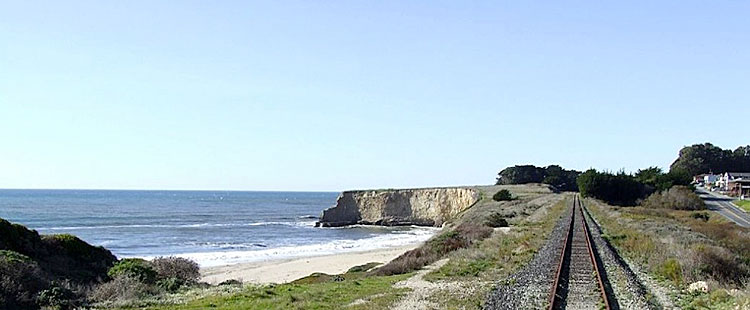Health Officer Concerned About Increased Gatherings
By Jondi Gumz
At Santa Cruz County Health Officer Dr. Gail Newel’s June 11 weekly COVID-19 briefing, she voiced concern that reopening more businesses would mean more cases, acknowledged that keeping the economy closed could bring “death by poverty” and revealed that beaches will open after July 6 when her last order expires.
She said the county on June 10 had seen 10 new COVID-19 cases, the most since the pandemic that began in March.
Mimi Hall, director the county’s Health Services Agency, noted the increase came two-and-a-half weeks after Memorial Day weekend, when several unsanctioned multi-generational family gatherings took place in Watsonville.
Newel said it was too early to draw conclusions about why the case count jumped, but she said she was “very worried” about protests in the street over the George Floyd killing by a police officer in Minneapolis and “quite worried” about the impact of a large gathering for the as-yet-unscheduled memorial for Sheriff’s Sgt. Damon Gutzwiller, who was fatally shot June 6 when responding to a call in Ben Lomond.
“All of us are grieving,” she said, noting Gutzwiller “worked directly with the public health division.”
She also said, “Racism is a public health matter. We are committed to addressing that.”
By Monday, the county’s updated information on COVID-19 cases showed a total of 257 cases, with nine new cases on June 10 instead of 10.
Asked for an explanation, county spokesman Jason Hoppin said, “From what I understand, cases may be entered into the database with discrepancies on the date entered. For example, a case may come to our attention on one day, but be backdated to when the test was confirmed.”
As of Monday, Watsonville had the most cases, 124, followed by the unincorporated areas, 64, Santa Cruz, 52, Capitola, 9, and Scotts Valley, 8.
There have been two deaths, in March and April, but most cases have not required hospitalization, and 11,985 test results have been negative.
The county has 23 “contact tracers” newly trained by the state joining the public health staff of 15 to interview people confirmed positive and find out who they might have exposed to COVID-19 so those people can be tested and if necessary quarantined.
That brings the number of contract tracers close to the 42 the state said is necessary to handle an outbreak.
The county has seen a big jump in testing capacity, Newel said, with a new partnership with UC Santa Cruz will provide testing at skilled nursing facilities, where patients and staff are considered to be at higher risk.
Newel is following Gov. Newsom’s lead in reopening sectors of the economy.
“Twelve new industries opened,” she said.
Massage therapists, estheticians, nail salons, skin care, electrology, waxing and cosmetology services and tattoo parlors and body piercing got the okay to reopen June 19.
Most of the COVID-19 cases have come from exposure to a household member, Newel said.
There have been 21 confirmed cases among health care workers, six among first responders, and 21 among farm and agricultural workers.
Tom AmRhein, who chairs the Santa Cruz County Farm Bureau’s Covid-19 response, said during a telephone town hall with County Supervisor Zach Friend and his constituents, said, “Field transmission of COVID-19 is rare and practically unheard of.”
There are “some hotspots related to situations of housing and ride-sharing,” he said, noting the scarcity of affordable housing has multi-generational families doubling up.
Monterey County, with more COVID-19 cases among ag workers, has food processing plants, while much of the ag work in Santa Cruz County is outdoors and focuses on berries.
Berry workers, working outside in the sunlight, wearing masks, washing hands and social distancing — the environment doesn’t lend itself to transmission of the disease, Am Rhein said.

